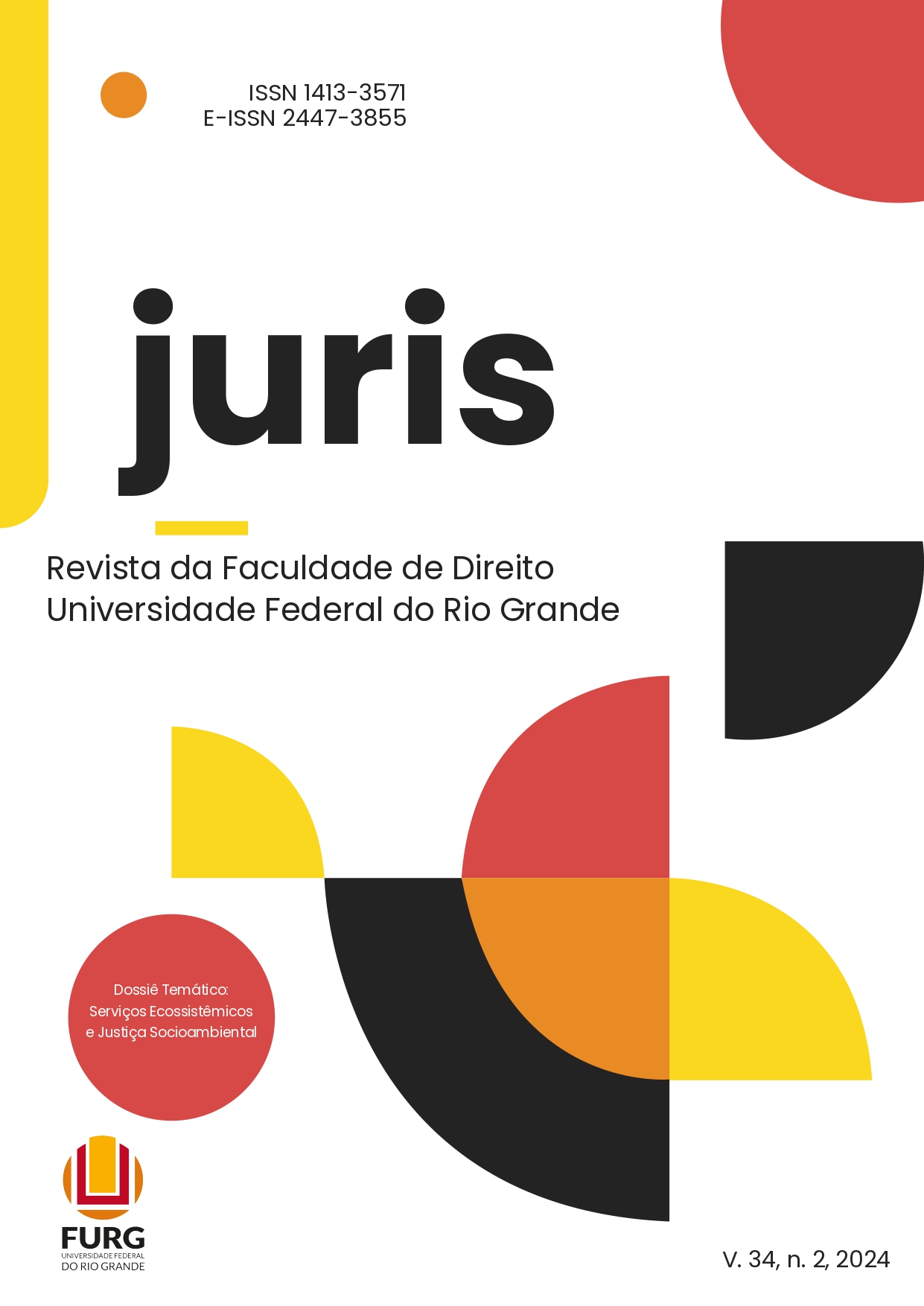What you paint green is green:
reflections on the financialization of nature
DOI:
https://doi.org/10.14295/juris.v34i2.17664Keywords:
coloniality, capitalism, green economy, payments for environmental services, traditional peoples and populationsAbstract
This article seeks to critically discuss the green economy and its instruments, especially payment for environmental services, taking as its theoretical basis the critique of capitalism and coloniality, as well as providing alternatives to development. The method used is deductive and the research techniques adopted were bibliographical and documentary review. We understand that it is not possible to analyze a policy in isolation from its context. In this sense, it can be seen that the green economy is yet another subterfuge for capitalism and hegemonic society to reinvent itself in its cyclical crises. These ideas were strengthened in the crises of the 1960s and 2008, and gained momentum in 2012 at Rio +20. More than just a way to circumvent the crisis by stifling social criticism and possible revolutions, this strategy has allowed nature to contribute even more to the accumulation of capital. Now, more than just raw material, nature has become a commodity that can be traded (whether it is preserved or devastated/polluted); there is a metric that establishes a monetary value for an ecosystem. This financialization of nature is part of an anthropocentric and utilitarian logic and goes against the ways of living in the territories of traditional peoples and communities. With regard to the PNPSA, we believe it is a new policy that needs to be better analyzed. However, the context in which it was approved gives us some indication that its objective, in the end, is not the preservation and conservation of nature. Instead of investing in policies stimulated by the World Bank, we believe that we should learn from traditional peoples and populations in order to possibly reverse the environmental crisis we are experiencing; for good living and good ‘co-living’; to prevent ‘the falling sky’.
Downloads
Downloads
Published
How to Cite
Issue
Section
License

This work is licensed under a Creative Commons Attribution 3.0 Unported License.
Ao encaminhar os originais, o(s) autor(es) cede(m) os direitos de publicação para a JURIS.







